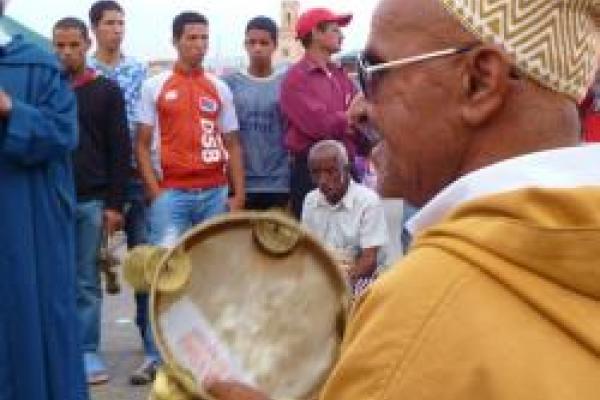
The Jemaa el Fnaa square in Marrakech, Morocco, where locals and tourists gather day and night to watch a wide variety of street performers, became ground zero for UNESCO's Intangible Cultural Heritage agenda in 1997 when the novelist Juan Goytisolo became concerned about a proposed redevelopment and called up his old friend Federico Mayor Zaragoza to suggest that old buildings were not the only kind of culture UNESCO should protect. Since then, ICH has become a dominant global approach to the maintenance of cultural diversity. Tom Beardsleewill talk about the emergent order of the square as performers negotiate the space with one another, how implementation of ICH has affected both the life of the square and performer livelihoods, and how the capability approach, enunciated by Amartya Sen as an alternative to economic development policy, suggests alternatives.
With this informal event, we inaugurate a collaboration between the Center for Folklore Studies, the Department of Linguistics, and the Mershon Center for International Security Studies: the Mershon Research Network in Cultural Resilience. We will meet again in late May and once more in August to discuss readings on resilience and on capabilities, looking for alternative conceptual framings that might allow us to think clearly about the conditions under which traditional culture and small languages can thrive, and how--or whether--that thriving is correlated to human well-being. On September 5th and 6th we'll hold a conference, "Sustainable Pluralism: Linguistic and Cultural Resilience in Multiethnic Societies." Although we are not sure where this conversation will end up (the resilience framework poses its own pitfalls) we are interested in breaking out of the identity jail set up by the heritage approach. Too often the global conversation can imagine no contemporary modes of difference beyond tourism and terrorism.
The network builds on Ohio State's deep expertise in the cultural and political dynamics of plural societies, calling on ground-level perspectives to invigorate a tired policy debate. Researchers in any discipline and especially graduate students are especially invited to participate. For further information please contact coordinators Brian Joseph or Dorothy Noyes.
Photo courtesy of Thomas Beardslee: "Abdelhakim and Band2"
